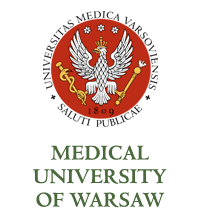You are here
Patient’s Information and Study Description
Patient’s Information and Study Description in PDF
Below, we provide information about the research project entitled “The influence of genomic variability on phenotypic discordance - monozygotic twins study”. You are being given the opportunity to participate in this research study. The purpose of this Patient’s Information and Study Description is to help you decide if you want to be involved in proposed research study. If you find any word or information that you do not understand, please ask the study staff to explain them for you.
Your participation in this study requires blood or DNA sample (if available), as well as an access to the medical information.
Research project is conducted by professor Rafal Ploski, M.D., Ph.D. (Principal Investigator) at the Department of Medical Genetics, Medical University of Warsaw, Poland.
Contact information:
Rafal Ploski, M.D., Ph.D
Department of Medical Genetics
Medical University of Warsaw
Pawinskiego 3c, 02-106 Warsaw, Poland
Phone: +48 22 5720 695
e-mail: rploski@wp.pl
Background
Monozygotic twins (MZTs) arise when a single fertilized egg gives rise to two separate embryos. Thus, MZTs have been considered to be physically and genetically identical. However, a significant number of phenotypically discordant MZ twin pairs, including those discordant for a disease (one twin is affected and the co-twin is unaffected), have been observed.
Genetic (changes in DNA sequence) and epigenetic (changes in DNA modification profile) factors are believe to play a role in MZTs disease-discordance.
Purpose
The aim of proposed study is to identify genetic and/or epigenetic variability causing phenotypic differences in MZTs. The project will implement genome-scale approaches based on state of the art next-generation sequencing technology such as whole-genome sequencing, whole exome sequencing, and genome-wide methylation analysis,
With the assumption that genomes and epigenomes of MZTs are highly similar, linking the identified differences to the disease phenotype is much less challenging than in any other type of analysis aiming to establish such relationship or lack of thereof. Thus, the planned study may reveal novel mutations/genes causing human diseases.
Inclusion criteria
Only MZTs with genetically confirmed monozygosity who are discordant for a chronic disease which may have a genetic basis will be enrolled into proposed study.
Study design and procedures
1. Blood sample (5-10 ml) or DNA sample (if available) will be collected from both twins, the affected and unaffected one. Blood sample will be used for DNA purification.
2. In the first step, zygosity will be tested, and only confirmed MZTs will be enrolled into genome-scale studies.
3. For selected MZTs genome-wide analyses will be performed, including: whole exome sequencing and/or genome-wide methylation analysis. In selected cases, whole-genome sequencing will be performed.
4. Each identified potentially interesting discordant (epi)genetic variant(s) will be validated using “golden standards” for DNA sequencing and (epi)genomic profiling.
5. Your blood or DNA sample will be coded to remove any personal identification during the analysis in the laboratory. Identification data, including your name, address and ID number, as well as medical information, will be coded and kept in a safeguarded database. Only Principal Investigator will have the information that matches the code to the personal data.
6. Your DNA sample will be stored at the Department of Medical Genetics, Warsaw, Poland. DNA sample will be used for genomic analysis of MZTs disease discordance, and will not be available for any other kind of non-research or medical testing.
Potential Benefits
Proposed study has a research character and aims to understand the genomic and epigenomic background of observed MZT phenotype discordance. Although the study may help to provide/confirm diagnosis in the affected twin it is possible that you will not benefit personally from donating a sample because this kind of research usually takes a long time to produce medically useful results. However, your participation may help to understand more about human genetic variation and how it relates to health and disease.
Potential Risks
There is no potential risk associated with taking a blood sample. However, extensive genetic testing creates a potential risk in for uncovering unwanted information regarding specific susceptibility to disease. However, if you choose you may opt out from receiving any information of this kind.
Subject Costs and Payments
There are no costs to you associated with your participation in this study. You will receive no payment for participating in the study.
Confidentiality
Every effort will be made to maintain the confidentiality of your personal and medical data, as well as the study records. The data from the study will be published in literature and present on scientific conferences; however, you will not be identified by name.
Withdrawal
It is important that you understand that your participation is completely voluntary. This means that even if you agree to participate, you are free to withdraw from the study at any time, or you may decline to participate in any portion of the study without penalty.
Consent form
Your signature on a consent form acknowledges your voluntary participation in this research project (Consent form).

